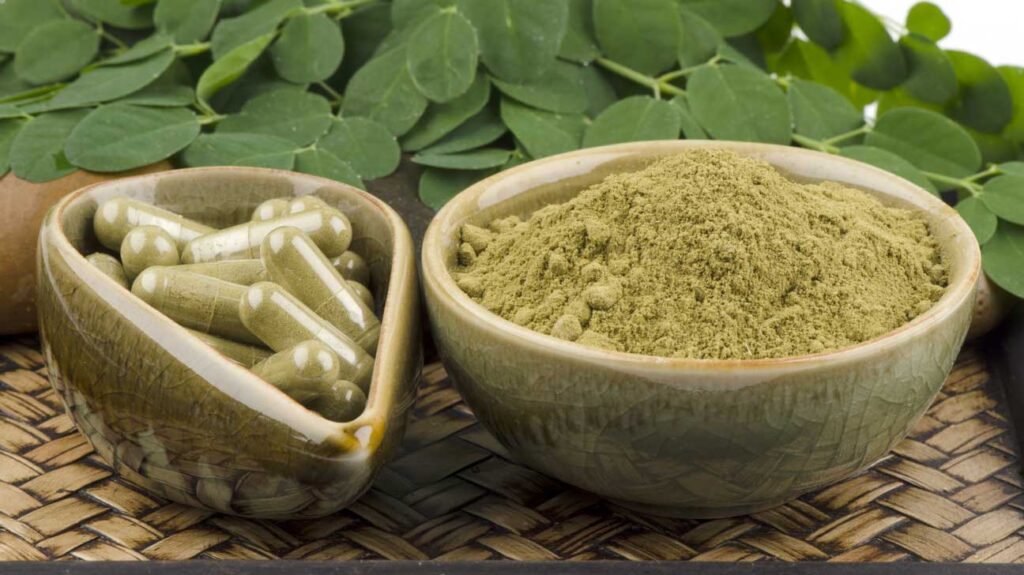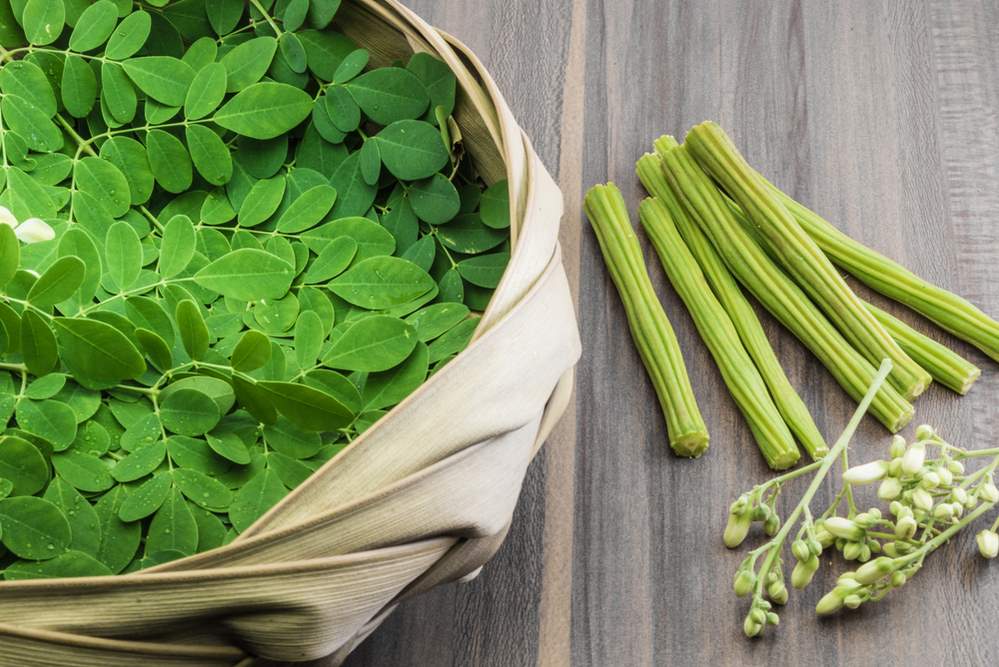Originating in northern India, south of the Himalayan Mountains, moringa trees are planted all over the world. It’s commonly utilized in both food and medication.
The moringa tree’s almost whole body is edible. It is abundant in minerals and antioxidants, which are sometimes lacking in the diets of those residing in developing nations.
As an antiseptic, its powder can be used to clean polluted surfaces. It works well against a variety of bacteria and fungi, including those that can lead to stomach cancer and ulcers. In addition, moringa powder is used to treat a number of other illnesses, such as diabetes, hypertension, and typhoid fever. Its numerous beneficial components are assumed to be the cause of its effects.
Here are some of the benefits of using Moringa:
Moringa is very high in nutrition

The dried leaves are available in powder or capsule form for use as nutritional supplements. The pods often contain fewer vitamins and minerals than the leaves do. Still, they have an incredibly high vitamin C content. 157% of your daily needs are found in one cup (100 grams) of fresh, sliced pods.
Among the several vital substances found in moringa are:
vitamin A
vitamin B1 (riboflavin) and vitamin B2 (thiamine)
Niacin, or vitamin B3,
the ascorbic acid (vitamin C)
Iron, calcium, and potassium
magnesium and phosphorus
Can lower cholesterol
In addition to almonds, oats, and flaxseeds, moringa leaves are a dependable treatment for hypercholesterolemia. The primary cause of heart disease is high cholesterol, and consuming moringa leaves has been shown to significantly lower high cholesterol. Lowering those levels and lowering the risk of heart disease are two benefits of moringa oleifera. Elevated cholesterol levels are often associated with pregnancy, which may raise the chance of developing gestational diabetes during the baby’s development. Gestational diabetes: what is it? This particular form of diabetes was initially identified in expectant mothers who were free of the disease before to becoming pregnant. You may definitely incorporate moringa leaves into your diet if you have gestational diabetes.
Can reduce inflammation in the body
Every year, around a million women receive a diagnosis of benign breast illness, which increases their risk of breast cancer. Studies indicate that these ladies might gain from anti-inflammatory medication. Regular use of an anti-inflammatory like moringa powder has been demonstrated to provide women with increased protection against breast cancer.
Good for skin and hair

Its leaves are rich in antioxidants and nutrients that enhance the condition and look of skin and hair. They give the skin and hair more luster and elasticity. It contains antioxidants that help to minimize the appearance of wrinkles and fine lines on the skin. There are roughly thirty antioxidants in them. Not just this, a hair paste made from its leaves, if applied to the scalp provides elasticity and vitality to lackluster and dandruff-prone hair. However, further research is needed. Moringa leaves for also been shown to be good for acne-prone skin. For this reason, a lot of cosmetics contain moringa leaves.
Good for your nervous system
The benefits of using its leaves have been reported for numerous nerve illnesses. As neuro-enhancers, they promote brain health. The elevated levels of vitamins C and E prevent neuronal damage and enhance cognitive performance. Eating moringa leaves on a regular basis is necessary for those who get migraines or recurrent headaches. Because they regulate the synthesis of neurotransmitters essential for mood, memory, and stimulus-response, including as noradrenaline, serotonin, and dopamine, these leaves also function as mood stabilizers.
Great for you Gut Health
The leaves of the moringa plant are good for stomach problems. Add its leaves to your diet if you have ulcerative colitis, gastritis, bloating, constipation, or gas. Because of its antibacterial and antibiotic qualities, the leaves are a great treatment for stomach issues. Digestion is improved even by the leaves’ strong B vitamin content.
Potential downsides of using Moringa
- In pregnant women, the roots, bark, and extract of this herb may cause uterine contractions. Pregnant women should take the advice of their doctors before including its leaves or products in their diets.
- Those using blood thinners are advised to stay away from this unless they speak with their physician beforehand. As with everything, most people can be safe when using it in moderation, but use caution if using it.
- Leaves of this plant might not be suitable for everyone. Although most people consider it to be safe and healthy, there are a few mild side effects to be aware of. The fruit, bark, roots, and leaves of this plant may be laxative when consumed in high quantities.
Read more..
Mahindra 3XO teaser launched; expected price and launch date

